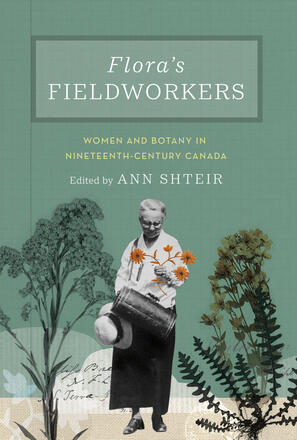
Flora's Fieldworkers
Women and Botany in Nineteenth-Century Canada
An account of women plant collectors and botanical artists, writers, and teachers whose activities went unrecognized in the historical record.
Description
When Catharine Parr Traill came to Upper Canada in 1832 as a settler from England, she brought along with her ties to British botanical culture. Nonetheless, when she arrived she encountered a new natural landscape and, like other women chronicled in this book, set out to advance the botanical knowledge of the time from the Canadian field.
Flora’s Fieldworkers employs biography, botanical data, herbaria specimens, archival sources, letters, institutional records, book history, and abundant artwork to reconstruct the ways in which women studied and understood plants in the nineteenth century. It features figures ranging from elite women involved in imperial botanical projects in British North America to settler-colonial women in Ontario and Australia – most of whom were scarcely visible in the historical record – who were active in “plant work” as collectors, writers, artists, craft workers, teachers, and organizers. Understood as an appropriate pastime for genteel ladies, botany offered women pathways to scientific education, financial autonomy, and self-expression.
The call for more diverse voices in the present must look to the past as well. Bringing botany to historians and historians to botany, Flora’s Fieldworkers gathers compelling material about women in colonial and imperial Canada and Australia to take a new look at how we came to know what we know about plants.
Reviews
“[Flora’s Fieldworkers] challenges the equation of ‘amateur’ with ‘unskilled’ and ‘insignificant’ and brings women botanists out of the shadows, giving their rigorous investigations the scientific credibility they deserve. This fascinating gathering of academic essays shows women collectors as astute observers and appreciators of plants in the wild.” Literary Review of Canada
“Refreshingly interdisciplinary, Flora’s Fieldworkers is replete with new information and insights, even on known figures like Dalhousie and Traill. The volume offers innovative perspectives on women’s involvement in botany and plant culture, making strides in the historiography on science in Canada and the fields of women, gender, and science.” Donald L. Opitz, DePaul University